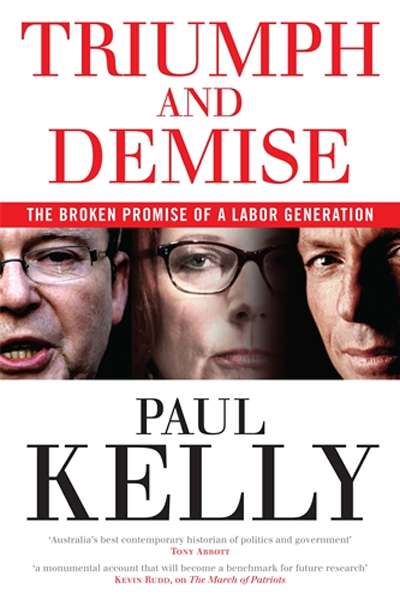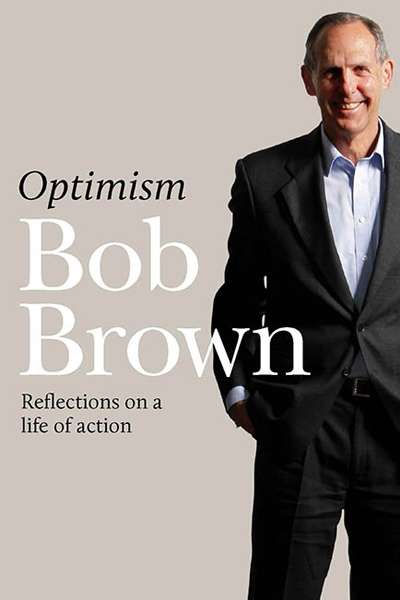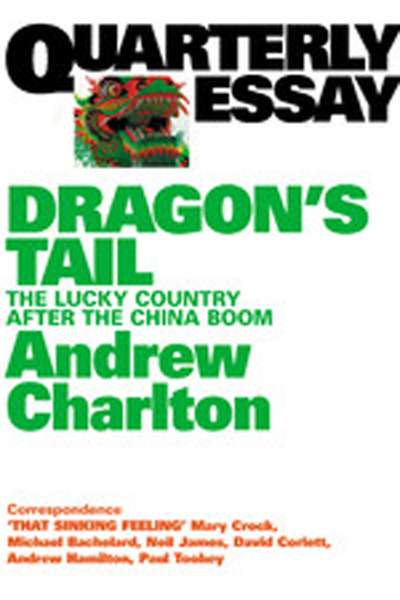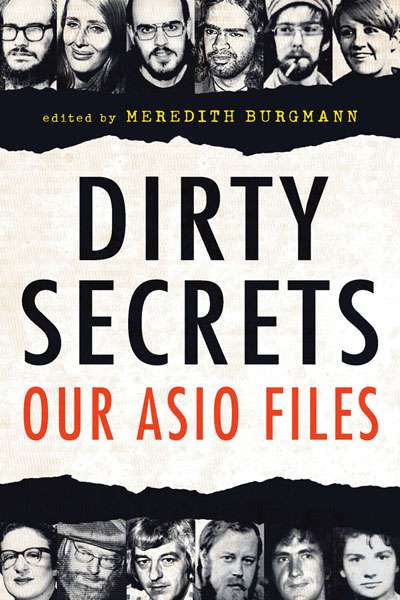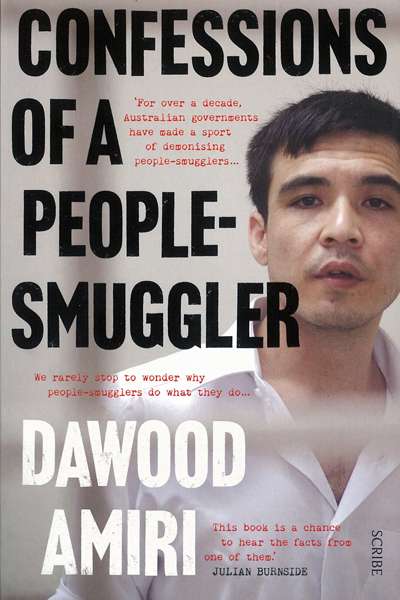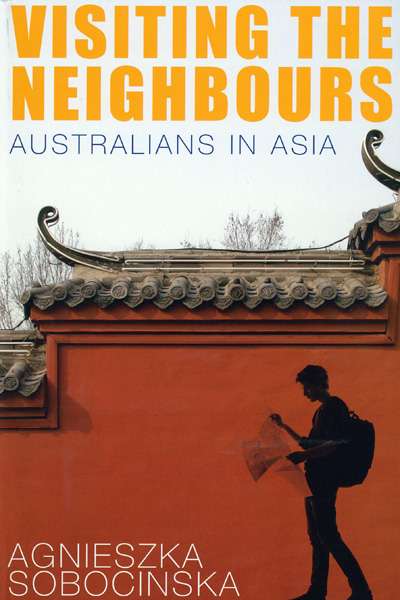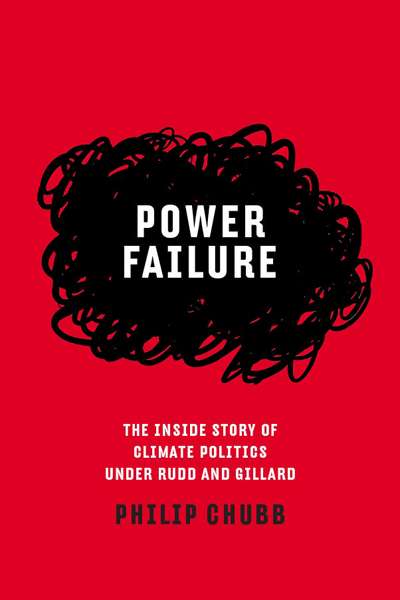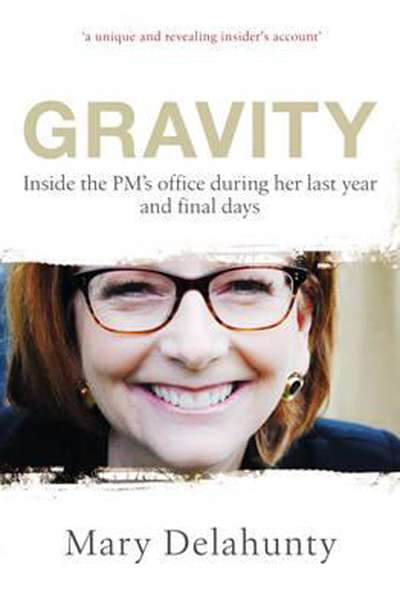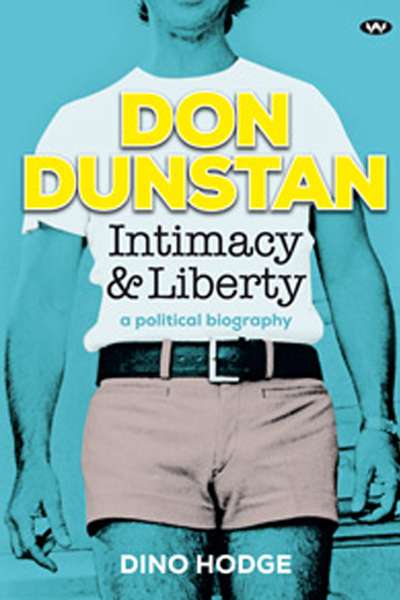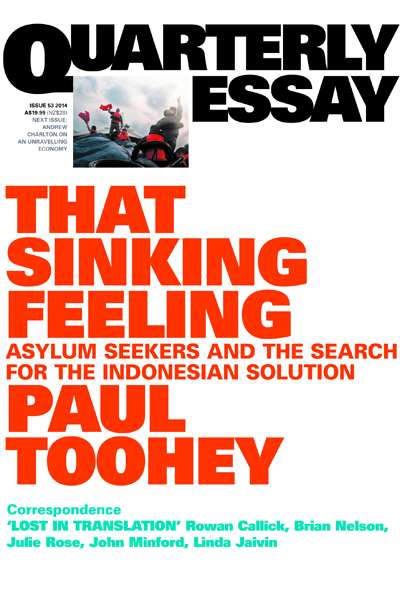Australian Politics
Triumph and Demise: The broken promise of a Labor generation by Paul Kelly
Paul Kelly’s considerable research ability, enviable political knowledge, narrative skill, and indulgence in polemics all figure in his new book. The former qualities make it a must-read for the politically engaged; the latter is so pronounced that such readers may succumb to frustration and throw the book at the wall before reaching the valuable final chapter where at last we arrive at a coherent account of the systemic roots of ‘the Australian crisis’.
... (read more)There is a built-in paradox for the Greens: they need to both persuade people that we face major ecological disasters and at the same time hold out hope that we can respond meaningfully to them. To do this requires the sort of corny and touching optimism that gives Bob Brown’s book its title.
Optimism is neither a conventional memoir nor a political autobiography; it is rather a collection of sketches from the life of a man who will be remembered as one of the pivotal figures of Australian politics in the two decades that straddle the new millennium. The style is largely prosaic, excepting moments of real feeling when Brown describes the Tasmanian wilderness and his relationship to it.
... (read more)Dragon’s Tail: The Lucky Country after the China boom (Quarterly Essay 54) by Andrew Charlton
I dealt with China for most of the ten years I worked for the British Foreign Office from 1998. The one conclusion I drew from my experience over those years was that it didn’t take much to stumble into complexity. Britain and China have a vast historic hinterland. In 1839, British forces inflicted the first Opium War on China, and British politicians enforced the unequal treaties which ushered in what some Chinese call to this day ‘the century of humiliation’. In the hundred years that followed, Britain continued meddling and became involved in issues from Tibet to Hong Kong, building up a fund of resentment on the Chinese side that continues to pay back returns to the current day.
... (read more)The German film The Lives of Others (2006) ends with a coda, set after the fall of the Berlin Wall, in which protagonist Georg Dreyman is finally allowed access to the volumes of secret files collected on him by the Stasi. Apart from the sheer number, what strikes Georg most is the utter banality of the information contained within. It is a familiar reaction among the contributors to Dirty Secrets, a collection of essays from prominent Australians on the receipt of their ASIO files.
Meredith Burgmann, who has edited these essays, is refreshingly honest as to her aims. ‘I wanted to look at the effect of spying on those who have been its targets,’ she says in her introduction. Delightedly she adds, ‘We are finally writing about them instead of them writing about us.’ The lingering outrage underpinning the book rarely subsides.
... (read more)Confessions of a People-Smuggler by Dawood Amiri & The Undesirables by Mark Isaacs
After an explosion that killed five asylum seekers and injured dozens more on a boat moored at Ashmore Reef in 2009, Prime Minister Kevin Rudd described people smugglers as ‘the absolute scum of the earth’ and ‘the vilest form of human life’. Further tragedies at sea during the ‘fifth wave’ of boat arrivals to Australia provoked similar outbursts from politicians across the political spectrum.
... (read more)Visiting the Neighbours: Australians in Asia by Agnieszka Sobocinska
It was timely that halfway through reading this book, I glanced up to see Clive Palmer on Q&A vowing to stand up to ‘the Chinese mongrels’. It was as if a columnist from the Bulletin circa 1895 had risen from the grave to thump a battered tub and warn us about the monster intent on destroying ‘our Australian way of life’. Images like these still lurk in the bedrock of White Australian consciousness, and Palmer’s outburst was a reminder of how readily they can be summoned.
... (read more)Power Failure: The inside story of climate politics under Rudd and Gillard by Philip Chubb
Speaking about the process of painstakingly researching the ‘terrible mistakes’ made on climate policy by the Rudd and Gillard governments over the six years of their existence, Philip Chubb told an audience at the Wheeler Centre that he ‘almost exhausted [himself] with gloom’. Indeed, this important book, which covers the Icarian trajectory of climate policy through Labor’s years in power, is hardly cheerful. Rather, Chubb hopes that the documentation and analysis of the many poor decisions will help legislators to overcome the challenges of implementing significant but controversial reforms in the future.
... (read more)Gravity by Mary Delahunty & Rudd, Gillard and Beyond by Troy Bramston
Gough Whitlam may not have been one of the Australian Labor Party’s greatest prime ministers, but, since his defenestration by Governor-General John Kerr in 1975, he has been embraced as one of the ALP’s great martyrs. Kerr’s dismissal of the Whitlam Government galvanised the Labor movement. To Labor eyes, Kerr was Pontius Pilate and Whitlam the slain Messiah. New followers – many of them, like Whitlam, university-educated progressives – joined the ALP. New ideas were aired through policy think-tanks such as the Labor Resource Centre, headed by Jenny Macklin, a future federal deputy leader. Out of that angst and rage, a new ALP was forged. Labor was no longer a troglodyte party ruled by factional warlords and sectarian hatreds. It was a modern progressive movement hell-bent on winning and wielding power. After all, as Whitlam famously said to an ALP State Conference in Melbourne in 1967, ‘Only the impotent are pure.’
... (read more)Don Dunstan, Intimacy & Liberty: A political biography by Dino Hodge
When I was commissioned to write this review, I assumed that this book would be a conventional political biography. I looked forward to reading about Dunstan’s career as premier of South Australia (1967–68 and 1970–79), as his record of achievements showed that our states and territories have the potential to be powerful players in social and cultural reform. However, the focus of Dino Hodge’s intriguing book is Dunstan the man, with an emphasis on the way in which his personal beliefs and ambiguous sexuality influenced his political life and legacy. Don Dunstan, Intimacy and Liberty makes a solid contribution to our understanding of Dunstan and the blurring of his private and public life, fanned partly by the media, but also, sometimes inadvertently, by the man himself.
... (read more)That Sinking Feeling: Asylum Seekers and the search for the Indonesian Solution (Quarterly Essay 53) by Paul Toohey
Do the ends always justify the means? And if the boats really have stopped coming, should we see the death of Reza Berati and the suffering of thousands as the collateral damage of a successful policy?
Paul Toohey’s panoramic sweep of this human, ethical, and political terrain begins with a visit to Cisarua, a small resort town in the mountains south of Jakarta that has become a major centre for people seeking asylum in Australia. Some are awaiting the outcome of formal applications for refugee status. Others are preparing to risk a boat. It is July 2013, two months before the federal election. Toohey spends time getting to know people, listening to tales of their journeys and, later in the essay, talking to survivors plucked from the ocean after a boat is lost at sea. If for no other reason, Toohey’s essay should be read for this; as a powerful, necessary reminder that ‘asylum seekers’ have stories, loves, fears, names, and faces.
... (read more)

